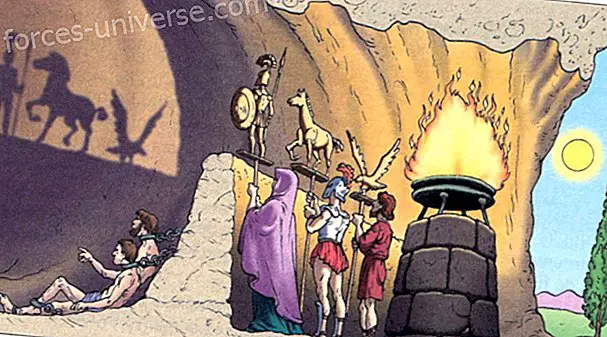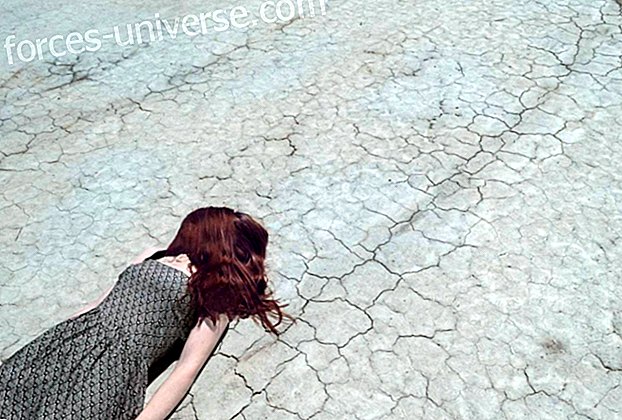
Freedom [03/31/2008]
UNLESS the mind is absolutely free from fear, all kinds of action begets more harm, more misery, more confusion.
We said how important it is that a fundamental change be made in the human psyche, and that this change can only arise if there is complete freedom. That word, liberty, is very dangerous unless we understand its full and absolute meaning, we have to learn all the implications of that word, and not just its meaning according to the dictionary. Most of us use it according to our particular tendency, or caprice, or politically. We will not use that word in a political or circumstantial sense; rather, we will penetrate its internal and psychological meaning. But first we have to understand the meaning of the word "learn." As we said the other day, we will all communicate - which means participating, sharing together - and learning is part of it. You will not learn from the speaker, but you will learn by observing, using the speaker as a mirror to observe the movement of your own thinking, of your own feeling, of the psyche, of your own psychology. There is no authority in which the speaker has to sit on a stage for practical reasons; that position does not confer any authority. We can, therefore, discard that completely and consider the question of learning, but not to learn from another, but to use the one who speaks to them to learn about oneself. You are learning by observing your own psyche, your own ego, whatever. To learn there has to be freedom, a great interest, and there has to be intensity, passion and urgency. They cannot learn if they lack passion or energy to investigate. If there is any kind of prejudice, any predisposition of like or dislike, of condemnation, it is not possible to learn, because then one only distorts what one observes.
The word discipline implies learning from a person who knows; You are not supposed to know and, therefore, learn from another. That is implicit in what we call "discipline." But when we use that word here, we don't indicate how to learn from another, but how to observe oneself. The latter requires a discipline that is not repression, imitation, or conformity, not even adjustment, but really observation. That same observation is an act of discipline. That same act of learning is your own discipline, in the sense that you have to pay close attention, and it requires great energy, intensity and instant action.
We are going to talk about fear, and in examining the matter we have to consider many things, because fear is a very complex problem. Unless the mind is absolutely free from fear, every action begets more harm, more misery, more confusion. So we are going to investigate together about the repercussions of fear and if it is possible to be completely free of it: not tomorrow, not at some future date, but when we leave this room, cease to exist for you the burden, the darkness, the Misery and corruption of fear.
In order to understand this we must also examine the idea we have of the gradual, that is, the idea of gradually getting rid of fear. There is no possibility of gradually getting rid of fear. Either one is completely free of him, or he is not; there is no gradual, which implies time; not only time in the chronological sense of the word, but also in the psychological sense. Time is the very essence of fear, as we will point out later. Therefore, to understand and be free from fear and the conditioning in which we have been educated, the idea of slowing it down, eventually, has to end completely. That is going to be our first difficulty.
If I may point it out again, this is not a conference, it is rather the case of two friendly and affectionate people who inquire together about a very difficult problem. Man has lived in fear, he has accepted it as part of his life, and we are investigating the possibility, or rather the "impossibility, " of ending him. You know that what is possible is already done, it is over; it's not like that? If possible we can do it. But what is impossible becomes possible only when we understand that there is no tomorrow at all; speaking from the psychological point of view. We face the extraordinary problem of fear, which man has never been able to completely get rid of. He has never been able to get rid of him, not only physically, but also internally or psychologically; He has always escaped from it through entertainment, whether religious or otherwise. And those escapes have constituted an evasion of "what is." We are concerned, then, with the "impossibility" of being completely free from fear; therefore, what is "impossible" becomes possible.
What is fear really? Physical fears can be understood relatively easily, but psychological fears are much more complex, and in order to understand them there must be freedom to inquire, not to form an opinion, or to inquire dialectically about the possibility of ending fear. But let's first examine the issue of physical fears, which naturally affect the psyche. When we encounter a danger of any kind, a physical response instantly arises. Is that fear?
(You are not learning from me; we are all learning together; and, of course, you should pay close attention because it is not right for us to come to a meeting of this kind to return with some series of ideas or beliefs; that does not free the mind of fear, but what liberates the mind from fear in a complete and absolute way is to fully understand it now, not tomorrow, it is like seeing something in a total and complete way, and what you see you understand, then it is yours and No one else's.)
There is, then, physical fear, such as looking at a cliff or encountering a wild animal. Is physical fear the answer to that danger, or is it intelligence? We meet a snake and respond immediately. That answer is the past conditioning that says: "Be careful, " and the psychosomatic reaction is immediate, though conditioned; It is the result of the past because you had been told that the animal was dangerous. When facing a physical danger, is there fear? Or is the intelligence response to the need for self-preservation? There is also the fear of experiencing physical pain or illness that has been previously experienced. What happens in this case? Is that intelligence? Or is it an action of thought, which is the response of memory, fearful that the pain suffered in the past may be repeated? Is the fact that thought produces fear clear? There are also various forms of psychological fears: fear of death, fear of society, fear of not being respectable, fear of what people may say, fear of darkness, and so on. Before examining the issue of psychological fears, we have to understand something very clearly: we are not analyzing. The analysis has no relation to observation, to seeing. In the analysis there is always the analyzer and the analyzed. The analyzer is a fragment of the many other fragments of which we are composed. A fragment assumes the authority of the analyzer and begins to analyze. Now, what is involved in all that? The analyzer is the censor, the entity that arrogates authority in order to analyze because it means having knowledge for it. Unless he analyzes completely, faithfully, without any distortion, his analysis has no value at all. Understand this clearly, please, because the speaker does not support the need for any analysis, at any time, whatever. This is rather a bitter pill difficult to swallow, because most of you have been analyzed or are going to be analyzed, or have studied what the analysis is. The analysis implies not only a separate analyzer from the analyzed, but also implies time. We have to gradually analyze, part by part, the whole series of fragments of which we are constituted, and that takes years. And when we analyze, the mind has to be absolutely lucid and free.
Therefore, there are several things involved: the analyzer, a fragment that separates itself from other fragments and says: "I will analyze"; there is also time, day after day watching, criticizing, condemning, judging, evaluating, remembering. The whole drama of dreams is also involved in it; We never wonder if there is any need to dream, even when all psychologists say we have to dream, because otherwise we would go crazy. Who, then, is the analyzer? It is part of oneself, part of our mind, that will examine the other parts; it is the result of past experiences, of knowledge of the past, of past evaluations; It is the center from which you will examine. Does that center have any reality, any validity? All of us act from a center, which is a center of fear, anxiety, greed, pleasure, despair, hope, dependence, ambition, comparison; From that center we think and act. This is not an assumption, nor a theory, but an unquestionable and observable fact in daily life. In this center there are many fragments, and one of the fragments becomes the analyzer; which is absurd, since the analyzer is the analyzed. You have to understand this, because otherwise you will not be able to move forward when we will penetrate deeper into the question of fear. They must fully understand it, because when they leave this enclosure they will have to be free from fear, so that they can live, enjoy and look at the world with different eyes; so that their relationships do not again bear the weight of fear, of jealousy, of despair; and so they will become human beings, not violent and destructive animals.
The analyzer is, therefore, the analyzed, and in the separation between the analyzer and the analyzed is the whole process of the conflict. And the analysis implies time; when he has analyzed everything, one is ready for the grave and, meanwhile, has not lived at all. (Laughter.) No, they don't laugh; This is not fun, but something terribly serious. Only the formal person, serious, knows what life is, what it is to live; Not the man who is looking for fun. This requires serious and passionate research. The mind must be completely free of the idea of analysis, because it makes no sense. You have to see this, not because the one who speaks to you says it, but because you see the truth of the whole process of the analysis. That truth will bring understanding; the truth is understanding of the falsity of the analysis. Thus when one sees what is false, one can discard it completely. Only when we don't see it is when we are confused.
Beyond Violence, KFT.






